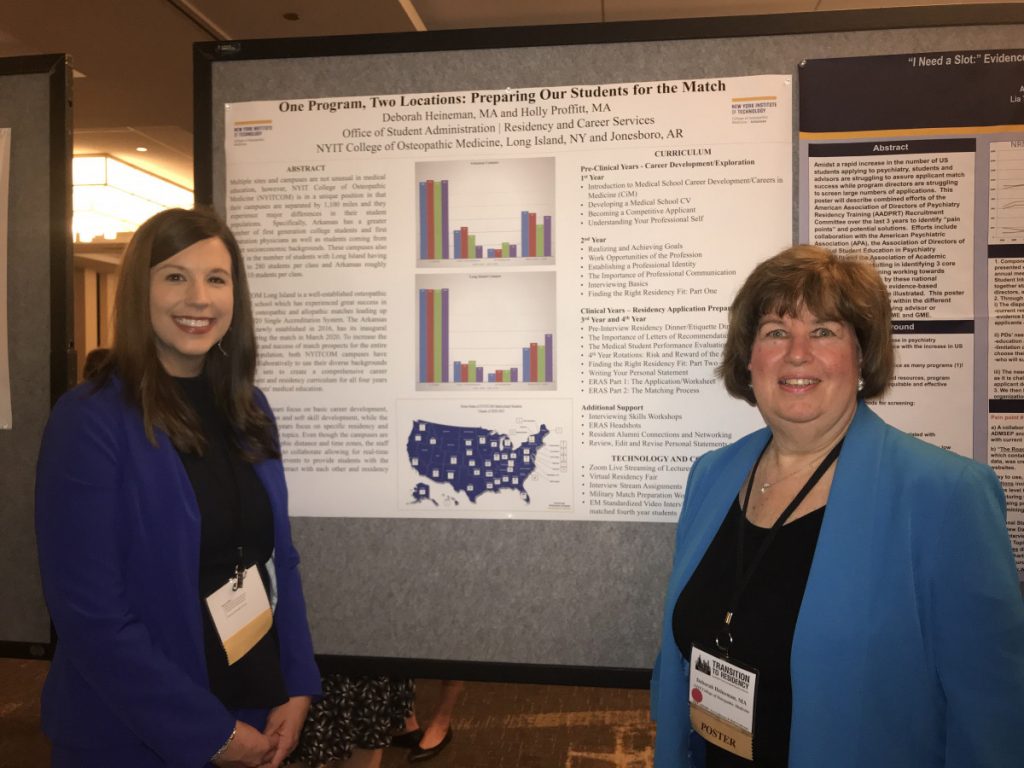
Holly Proffitt, UM higher education Ph.D. student and senior career advisor at the New York Institute of Technology College of Osteopathic Medicine (NYITCOM)- Jonesboro, AK, co-presented at the National Residency Match Conference in Chicago, Illinois.
Proffitt’s poster presentation titled, “One Program, Two Locations: Preparing Our Students for the Match” focused on the curriculum, uses of technology and projected outcomes based on the efforts of the Residency and Career Services teams at NYITCOM, Long Island, NY and Jonesboro, AR.
“As a Ph.D. student, I enjoy being able to contribute to the field, specifically, medical education,” said Proffitt. “This presentation allowed me to collaborate with my counterpart on another campus and share successes in the field of career development with a specialized population.”
The National Resident Matching Program® (NRMP®), brings together undergraduate and graduate medical education stakeholders – medical school deans and faculty, residency program directors, and the leaders of GME sponsoring institutions to generate ideas and prepare medical students for the next step in their education.
“This is also the first year my campus (NYITCOM-Arkansas) will have students participating in the match and pursuing graduate medical education, so presenting at this conference was representative of their efforts and the work we have been doing for the last four years in preparing them for success post-graduation,” Proffitt said.
Proffitt notes the Arkansas campus, newly established in 2016, has its inaugural class entering the match in March 2020. To increase the confidence and success of match prospects for the entire student population, both NYITCOM campuses have worked collaboratively to use their diverse backgrounds and skill sets to create a comprehensive career development and residency curriculum for all four years of the students’ medical education. Even though the campuses are divided by geographic distance and time zones, the staff have found ways to collaborate allowing for real-time presentations and events to provide students with the opportunities to interact with each other and residency program staff.
“We were also the only non-physicians presenting at this conference which was really impactful for a higher education practitioner in medical education,” Proffitt said.
By Veronica Crawford
